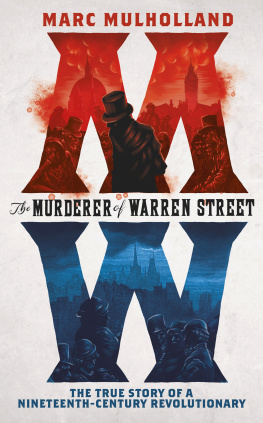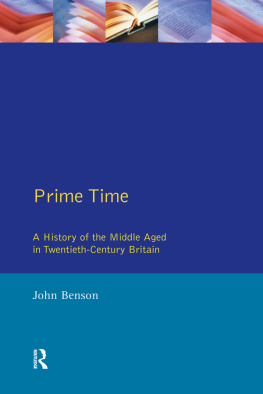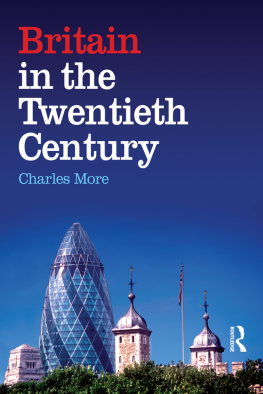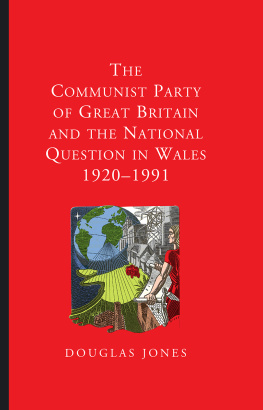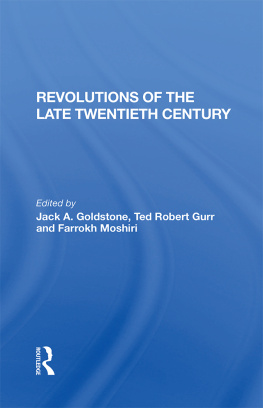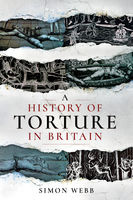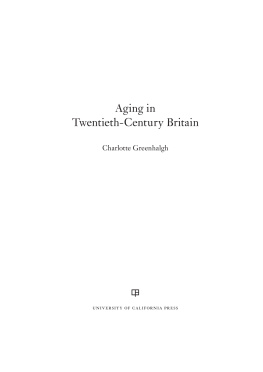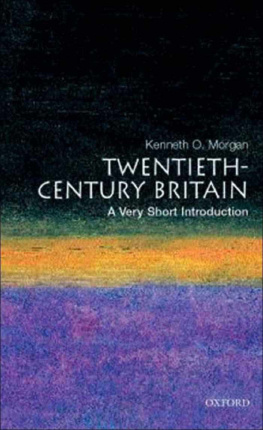Mulholland - The cultural devolution: art in Britain in the late twentieth century
Here you can read online Mulholland - The cultural devolution: art in Britain in the late twentieth century full text of the book (entire story) in english for free. Download pdf and epub, get meaning, cover and reviews about this ebook. City: Aldershot, year: 2003, publisher: Taylor & Francis (CAM);Ashgate, genre: Art. Description of the work, (preface) as well as reviews are available. Best literature library LitArk.com created for fans of good reading and offers a wide selection of genres:
Romance novel
Science fiction
Adventure
Detective
Science
History
Home and family
Prose
Art
Politics
Computer
Non-fiction
Religion
Business
Children
Humor
Choose a favorite category and find really read worthwhile books. Enjoy immersion in the world of imagination, feel the emotions of the characters or learn something new for yourself, make an fascinating discovery.
- Book:The cultural devolution: art in Britain in the late twentieth century
- Author:
- Publisher:Taylor & Francis (CAM);Ashgate
- Genre:
- Year:2003
- City:Aldershot
- Rating:5 / 5
- Favourites:Add to favourites
- Your mark:
- 100
- 1
- 2
- 3
- 4
- 5
The cultural devolution: art in Britain in the late twentieth century: summary, description and annotation
We offer to read an annotation, description, summary or preface (depends on what the author of the book "The cultural devolution: art in Britain in the late twentieth century" wrote himself). If you haven't found the necessary information about the book — write in the comments, we will try to find it.
Mulholland: author's other books
Who wrote The cultural devolution: art in Britain in the late twentieth century? Find out the surname, the name of the author of the book and a list of all author's works by series.
The cultural devolution: art in Britain in the late twentieth century — read online for free the complete book (whole text) full work
Below is the text of the book, divided by pages. System saving the place of the last page read, allows you to conveniently read the book "The cultural devolution: art in Britain in the late twentieth century" online for free, without having to search again every time where you left off. Put a bookmark, and you can go to the page where you finished reading at any time.
Font size:
Interval:
Bookmark:

THE CULTURAL DEVOLUTION
BRITISH ART AND VISUAL CULTURE SINCE 1750
New Readings
General Editor: David Peters Corbett, University of York
This series examines the social and cultural history of British visual culture, including the interpretation of individual works of art, and perspectives on reception, consumption and display.
In the same series
The Emergence of the Professional Watercolourist Contentions and Alliances in the Artistic Domain, 1760-1824.
Greg Smith
Difficult Subjects
Working Women and Visual Culture, Britain 1880-1914.
Kristina Huneault
Memory and Desire Painting in Britain and Ireland at the Turn of the Twentieth Century
Kenneth McConkey
Art and its Discontents
The Early Life of Adrian Stokes
Richard Read
The Quattro Cento and Stones of Rimini A Different Conception of the Italian Renaissance
Adrian Stokes
British Artists and the Modernist Landscape
Ysanne Holt
Art in Britain in the Late Twentieth Century
Neil Mulholland

First published 2003 by Ashgate Publishing
Published 2016 by Routledge
2 Park Square, Milton Park, Abingdon, Oxon OX14 4RN
711 Third Avenue, New York, NY 10017, USA
Routledge is an imprint of the Taylor & Francis Group, an informa business
Copyright Neil Mulholland, 2003
The author has asserted his right under the Copyright, Designs and Patents Act, 1988, to be identified as the author of this work.
All rights reserved. No part of this book may be reprinted or reproduced or utilised in any form or by any electronic, mechanical, or other means, now known or hereafter invented, including photocopying and recording, or in any information storage or retrieval system, without permission in writing from the publishers.
Notice:
Product or corporate names may be trademarks or registered trademarks, and are used only for identification and explanation without intent to infringe.
British Library Cataloguing in Publication Data
Mulholland, Neil
The Cultural Devolution: Art in Britain in the Late
Twentieth Century. (British Art and Visual
Culture since 1750: New Readings)
1. Art, British 20th century. 2. Art criticism
Great Britain. 3. Art and state Great Britain.
I. Title
709.4109048
Library of Congress Cataloging-in-Publication Data
Mulholland, Neil.
The Cultural Devolution: Art in Britain in the
Late Twentieth Century/Neil Mulholland.
p. cm. (British Art and Visual Culture
since 1750: New Readings)
Includes bibliographical references.
1. Art, British 20th century. 2. Art and society
Great Britain History 20th century.
I. Title. II. Series.
N6768 .M85 2002
700.94109045dc21
2002026138
ISBN 13: 978-0-7546-0392-4 (hbk)
Typeset in Palatino by Manton Typesetters, Louth, Lincolnshire, UK
Jacket illustration: Keith Farquhar, Q: What does Woman Want? A: What the Women Want, tissue paper and pencil on canvas. Courtesy of Lucy McKenzie and the artist; photo: Alan Dimmick
Jane Allan, Conrad Atkinson, Terry Atkinson, Frank Auerbach, BALTIC, Kirsten Berkeley, Michael Bracewell, Andrew Brighton, The British Council, Victor Burgin, Cabinet Gallery, John Calcutt, Steven Campbell, Sadie Coles, Collective Gallery, Richard Cork, Terry Dennet, The Very Reverend Ryan Doolan, Keith Farquhar, James Faure Walker, Lyndsay Fielding, Duggie Fields, Simon Ford, Leigh French, Lucien Freud, Douglas Gordon, Paul Graham, Althea Greenan, Jennifer Higgie, Damien Hirst, David Hockney, Stewart Home, Richard Hooker, Dean Hughes, Alexis Hunter, Dick Jewell, Lucinda Lax, Lisson Gallery, London Records, Marlborough Fine Art, Lucy McKenzie, Ray McKenzie, Jim Medway, Malcolm Miles, Letty Mooring, Alice Mulholland, Craig Mulholland, Ian Mulholland, David Musgrave, National Galleries of Scotland, Tom O'Sullivan, Graham Parker, Clive Philpot, Alex Pollard, Anthony Reynolds, Saatchi Gallery, Jon Savage, Peter Saville, The Scottish Arts Council, David Shepherd, David Shrigley, Ross Sinclair, Matthew Slotover, Polly Staple, Linder Sterling, Tate Gallery, Joanne Tatham, Transmission, Rob Tufnell, Cosey Fanni Tutti, Martin Vincent, John A. Walker, Gary Webb, Jack Wendler, Nell Wendler, White Cube, Whitechapel Gallery, Anthony H. Wilson, Elaine Wilson, Women's Slide Library, Peter York.
The Cultural Devolution primarily focuses on the indeterminate relationships between institutions and practical/theoretical shifts in the British artworld from 1975 to the end of 2000. These developments are explored in relation to the momentous political upheaval during the last years of the Callaghan administration following the body blow of the 1976 International Monetary Fund crisis, and the revolutionary ultraconservatism of the Thatcher government of 19791990.
Significantly, it was during this period that the British fine art establishment found itself under resolute attack from both the left and right for the first time since the Second World War. The IMF crisis led the Labour government to look at ways of 'devolving' high culture, advocating social democracy by making the Arts Council of Great Britain financially and ideologically accountable to 'the public'. Given that the British artworld was, at this time, highly dependent on public subsidy, the art and criticism of the period can only begin to be understood if read in relation to its cultural and economic revolutions. This is especially pertinent given that both the Labour government and the Conservative opposition were making populist claims, the Conservatives demanding that the Arts Council be dismantled so that people could choose their own art (if they could afford it). Callaghan's drastic economic experiments were accelerated under the first Thatcher administration, which cut public subsidy and encouraged private patronage. I demonstrate the ways in which the ideological change from Keynesian culturalism to monetarist populism generated and financed the new art of the era: from proto-Punk performance to postmodernist object sculpture. In part, then, this forms a necessary pre-history to Charles Saatchi's alleged dominance of the British art scene, charting the pedigree of the Young British Artists (yBas) of the late 1980s and early 1990s. This serves as a corrective to accounts of '90s British art which lack an historical basis for assessing it. It also presents a very different account of postmodernist art practice to that found in texts which draw heavily on American examples, particularly the October School's interpretation of postmodernism.
This book points to numerous contradictions emerging within the new art and criticism of the 1970s and '80s. In contrast, proponents of the triumphant critical postmodernism of the '70s arid '80s (the Semiotic Art, Structuralist Marxism, Feminisms, Poststructuralism and New Art History which are the subject matter of this book) sought to ensure that its powerful and culturally significant reactionary elements were excluded from the official pre-occupations of art history and theory. It is also my contention that critical postmodernist accounts of British art in the '80s suppressed the importance of forms of cultural practice not associated directly with institutionalized art. Furthermore, I understand that the pursuit of theory led critical postmodernists to deny historical contradiction. This critical amnesia allowed untold opportunism in the British artworld as yBas sought to displace critical postmodernism, characterizing it as an irrelevant and outdated academic pursuit, eternally stuck in its golden era of the 1980s. If the theory and art historiography of recent British art are to escape their present aesthetic relativism, a vast number of practices and debates have to be reconsidered.
Font size:
Interval:
Bookmark:
Similar books «The cultural devolution: art in Britain in the late twentieth century»
Look at similar books to The cultural devolution: art in Britain in the late twentieth century. We have selected literature similar in name and meaning in the hope of providing readers with more options to find new, interesting, not yet read works.
Discussion, reviews of the book The cultural devolution: art in Britain in the late twentieth century and just readers' own opinions. Leave your comments, write what you think about the work, its meaning or the main characters. Specify what exactly you liked and what you didn't like, and why you think so.


